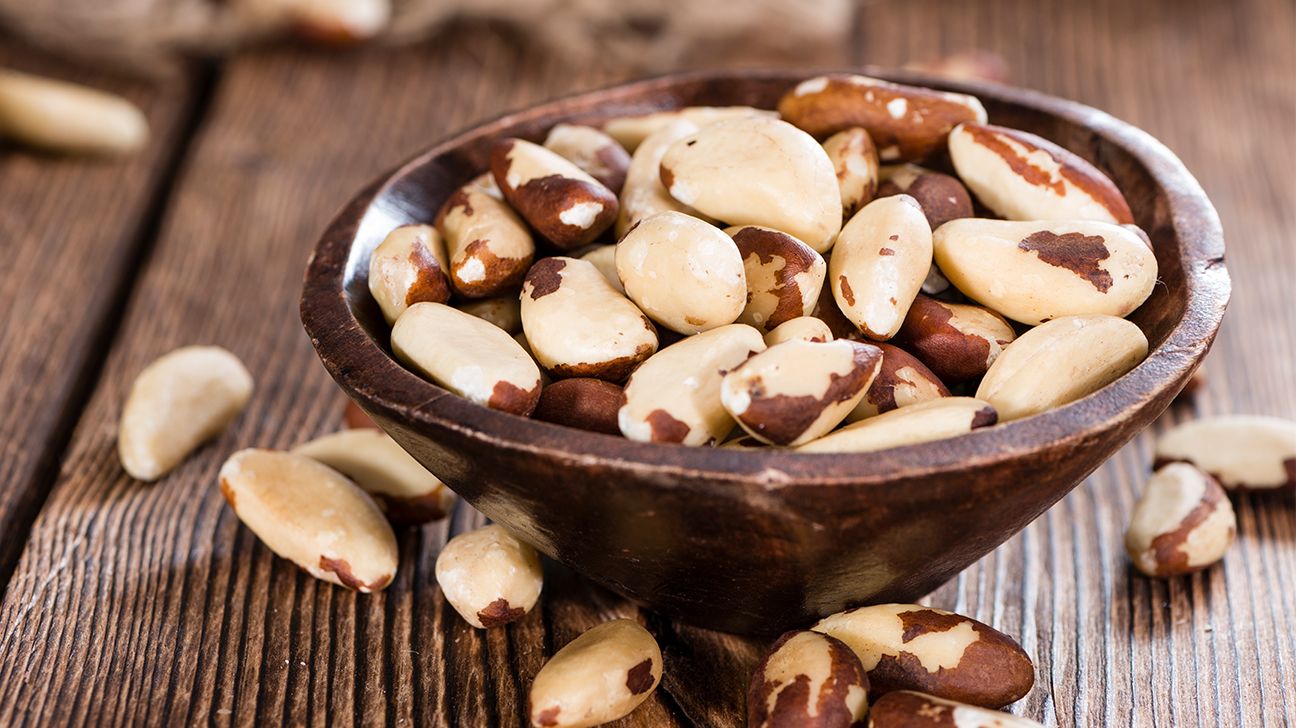Looking for natural remedies to manage thyroid disease? The thyroid gland is vital in maintaining the body’s metabolism, growth, and overall well-being. Shaped like a butterfly and located in the neck, this small gland produces hormones that influence every cell in the body. When the thyroid is not functioning correctly, it can lead to a range of health issues, collectively called thyroid disease. Discover 10 natural remedies for thyroid disease.
Thyroid disease affects millions of people worldwide, with women being more susceptible than men. The two most common forms of thyroid disease are hypothyroidism (underactive thyroid) and hyperthyroidism (overactive thyroid). Understanding the causes, symptoms, and treatment options can help individuals manage thyroid health effectively. Natural remedies and lifestyle changes can also support thyroid function and improve overall well-being. Natural remedies for thyroid disease made simple. Discover effective herbs, foods, and lifestyle changes to restore thyroid health.
What is Thyroid Disease?
Thyroid disease is any condition that affects the structure or function of the thyroid gland. It occurs when the gland produces too much or too little thyroid hormone. The two primary types of thyroid disease are:
- Hypothyroidism: Occurs when the thyroid does not produce enough thyroid hormone, leading to a slow metabolism.
- Hyperthyroidism: Occurs when the thyroid produces too much thyroid hormone, leading to an overactive metabolism.
Other thyroid-related conditions include:
- Goiter: An enlargement of the thyroid gland.
- Thyroid nodules: Lumps that form in the thyroid gland.
- Thyroid cancer: A rare form of cancer that originates in the thyroid gland.
Causes of Thyroid Disease
Thyroid disease can result from various factors, including:
- Autoimmune diseases: Conditions like Hashimoto’s thyroiditis (hypothyroidism) and Graves’ disease (hyperthyroidism) are common autoimmune disorders that affect the thyroid.
- Iodine deficiency: Iodine is essential for thyroid hormone production, and a deficiency can lead to goiter and hypothyroidism.
- Genetic predisposition: A family history of thyroid disorders increases the risk.
- Hormonal changes: Pregnancy, menopause, and hormonal fluctuations can impact thyroid function.
- Radiation exposure: Radiation treatment to the neck or head may damage the thyroid gland.
- Medications: Certain medications, such as lithium, can interfere with thyroid function.
- Thyroiditis: Inflammation of the thyroid gland can lead to temporary or permanent changes in thyroid hormone production.
Symptoms of Thyroid Disease
Symptoms of thyroid disease vary depending on the type (hypothyroidism or hyperthyroidism). Here’s a breakdown of the key symptoms:
Symptoms of Hypothyroidism:
- Fatigue
- Weight gain
- Cold intolerance
- Dry skin and brittle nails
- Depression
- Constipation
- Memory problems or “brain fog.”
- Slow heart rate
Symptoms of Hyperthyroidism:
- Unexplained weight loss
- Rapid or irregular heartbeat
- Nervousness or anxiety
- Heat intolerance
- Tremors (shaking hands or fingers)
- Increased appetite
- Diarrhea
- Difficulty sleeping (insomnia)
Treatment Options for Thyroid Disease
Treatment for thyroid disease depends on the type and severity of the condition.
- Hypothyroidism Treatment:
- Hormone replacement therapy: The most common treatment is taking daily synthetic thyroid hormone (levothyroxine).
- Lifestyle changes: A balanced diet and exercise support thyroid health.
- Hyperthyroidism Treatment:
- Anti-thyroid medications: These medications reduce the production of thyroid hormones.
- Radioactive iodine: This treatment shrinks or destroys overactive thyroid cells.
- Surgery: In severe cases, part or all of the thyroid gland may be removed.
10 Natural Remedies for Thyroid Disease
Natural remedies can support thyroid health and complement conventional treatments. Here are 10 effective remedies:
Ashwagandha

Ashwagandha is a powerful adaptogenic herb recognized for its ability to help the body manage stress and maintain hormonal balance. It primarily aids in regulating cortisol levels, benefiting individuals experiencing chronic stress. This herb also plays a significant role in supporting thyroid health, making it especially advantageous for those diagnosed with hypothyroidism. Ashwagandha can be taken in both capsule and powder forms. Consider incorporating the powder into your daily routine by mixing it into smoothies, warm milk, or even oatmeal for optimal results. Consistent daily consumption is recommended to harness its benefits fully.
Selenium

Selenium is a vital trace mineral essential for the production of thyroid hormones. It acts as a powerful antioxidant, helping to protect the thyroid gland from oxidative stress. Foods rich in selenium include Brazil nuts, eggs, and various types of seafood. Aim to consume 1-2 Brazil nuts daily to ensure you get enough selenium, as just a couple can meet your daily requirement. Additionally, including a variety of eggs and seafood, such as fish and shellfish, in your meals can significantly enhance your selenium intake and support overall thyroid health.
Iodine-Rich Foods

Iodine is crucial for synthesizing thyroid hormones, making its intake imperative for maintaining a healthy thyroid function. Foods high in iodine include seaweed, iodized salt, and dairy products. To boost your iodine levels, consider adding different varieties of seaweed, such as nori or kelp, to soups, salads, or healthy snacks. Additionally, ensure that you use iodized salt to meet daily iodine requirements, as this has become a standard dietary recommendation.
Coconut 0il
:max_bytes(150000):strip_icc()/GettyImages-466130802-0107d4c78ead4ee1880f11c092b65dbd.jpg)
Coconut oil is renowned for its unique medium-chain fatty acids, which can positively impact metabolism and support thyroid function. Due to its high smoke point, this oil can be used as a cooking oil for a variety of dishes. Moreover, you can integrate coconut oil into your diet by adding it to smoothies, herbal teas, or warm water. Regular use can enhance thyroid health and metabolism due to its stimulating properties.
Zinc

Zinc is an essential mineral that plays a crucial role in the synthesis of thyroid hormones and overall immune function. To boost your zinc levels, incorporate various foods into your meals. Nuts, seeds, legumes, and whole grains serve as excellent sources. Consider adding sunflower seeds, chickpeas, and lentils to your daily diet; they can be easily included in salads, soups, or snacks, ensuring you obtain adequate amounts of this vital nutrient.
Vitamin D

Vitamin D is essential for immune function and healthy thyroid levels. One of the best natural sources of vitamin D is sunlight; aim for 15-20 minutes of sun exposure daily. If you have limited access to sunlight, consider including vitamin D-rich foods in your diet, such as fortified plant-based milk, mushrooms, and oily fish, or consult a healthcare provider about vitamin D supplements.
Apple Cider Vinegar

Apple cider vinegar (ACV) has garnered attention for its numerous health benefits, including hormone regulation, body detoxification, and potential support for weight loss. To incorporate ACV into your diet, mix one tablespoon of ACV with a glass of warm water and drink it before meals. This practice can help stimulate digestion and balance your body’s pH levels.
Ginger

Ginger is well-known for its anti-inflammatory properties, which can significantly benefit thyroid function. Fresh ginger can be easily added to your diet by incorporating it into tea, smoothies, or various meals. Drinking ginger tea daily can reduce inflammation and enhance your overall well-being.
Probiotics

A healthy gut microbiome is crucial for optimal thyroid health, as it can influence hormone levels and overall metabolism. Probiotics, beneficial bacteria in fermented foods, promote gut health and may help support the thyroid. Including foods such as yogurt, kimchi, sauerkraut, and other fermented items in your meals can help maintain a balanced gut microbiome. Alternatively, consider taking a high-quality probiotic supplement to support this aspect of your health.
Herbal Teas

Herbal teas, such as green tea, chamomile, and dandelion tea, possess anti-inflammatory properties and can help reduce oxidative stress while supporting hormonal balance. Drinking 1-2 cups of herbal tea daily can soothe the body and potentially improve thyroid function. These teas not only hydrate but also offer various health benefits, making them a great addition to your daily routine.
Lifestyle Changes to Support Thyroid Health
Adopting specific lifestyle changes can improve thyroid function and overall well-being. Here are some essential tips:
- Healthy Diet: Eat a balanced diet with whole foods, lean proteins, and healthy fats.
- Manage Stress: Chronic stress disrupts hormonal balance, so incorporate relaxation techniques like yoga and meditation.
- Regularly: Regular physical activity supports metabolism, mood, and energy levels.
- Avoid Toxins: Limit exposure to environmental toxins like pesticides and chemicals that may disrupt thyroid function.
- Get Adequate Sleep: Aim for 7-9 hours each night to maintain hormonal balance.
- Regular Checkups: Schedule thyroid function tests to monitor hormone levels and adjust treatments as needed.
Conclusion
Learn how natural remedies for thyroid disease, like herbal teas and nutrient-rich foods, can help you maintain optimal thyroid health Thyroid disease is a prevalent condition that affects overall health and well-being. Understanding the causes, symptoms, and treatments is essential for effective management. While medical treatments are often necessary, natural remedies and lifestyle changes can support thyroid health. Incorporating stress management, a nutrient-rich diet, and exercise into daily routines can significantly improve thyroid function. If you experience symptoms of thyroid disease, consult a healthcare professional for a proper diagnosis and treatment plan.
FAQs
Q. What are the early signs of thyroid disease?
- Early signs may include unexplained weight changes, fatigue, mood swings, and changes in heart rate.
Q. Can thyroid disease be cured naturally?
- While natural remedies can support thyroid health, medical treatment may still be necessary for conditions like hypothyroidism and hyperthyroidism.
Q. How is thyroid disease diagnosed?
- Blood tests measure levels of thyroid-stimulating hormone (TSH), T3, and T4 hormones.
Q. What foods should I avoid if I have thyroid disease?
- If you have an iodine deficiency, avoid excessive consumption of goitrogenic foods (like cruciferous vegetables) and limit processed foods and refined sugars.
Q. How does stress affect thyroid health?
- Chronic stress increases cortisol levels, which disrupts hormonal balance and may affect thyroid function.
Q. Is it possible to prevent thyroid disease?
- While genetic predisposition cannot be controlled, a healthy lifestyle, stress management, and a balanced diet can support thyroid health.
Q. Can thyroid disease cause weight gain?
- Yes, hypothyroidism can slow metabolism, leading to weight gain.
Q. How often should I get my thyroid checked?
- If you have risk factors or a family history of thyroid issues, schedule a checkup annually.
Q. Can exercise help with thyroid health?
- Yes, exercise improves metabolism, mood, and stress management, all supporting thyroid health.
Q. Are there supplements to support thyroid function?
- Supplements like selenium, zinc, and vitamin D can support thyroid function, but consult a doctor before taking them.

